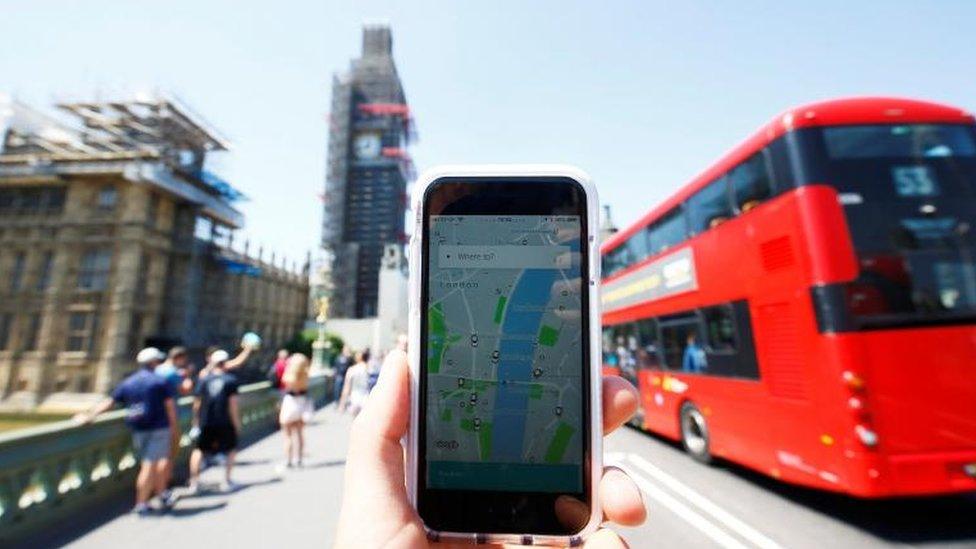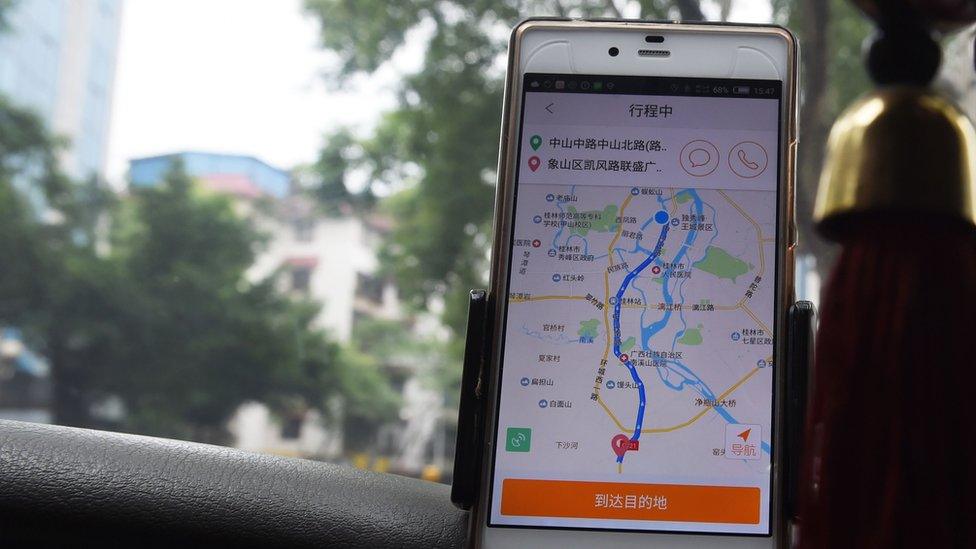Fake bookings hit Singapore's Ryde Technologies
- Published

Ryde Technologies is a Singapore-based ride-hailing start-up
Hundreds of fake accounts making "phantom bookings" have recently plagued Singapore-based firm Ryde Technologies, the company has said.
In recent weeks, nearly 300 such accounts have made 2,000 bogus bookings, costing drivers $50,000 (£37,900).
The start-up investigated the problem after drivers complained.
Uber, which offers a similar service, has in the past reported cases of fake bookings in other countries.
Ryde has filed a report with local police who are now investigating the matter, according to Reuters.
"Such manipulations of the app have distressed affected drivers, as their means of livelihood have been impacted," the firm said in a statement.
"On top of causing drivers to lose money on fuel, these acts severely limit the drivers' availability to take on more jobs as it sends them driving around in vain when they could have been picking up legitimate riders."
A spokeswoman confirmed to the BBC that the $50,000 lost by drivers refers to income they would have earned from bookings had they been real.
Demoralised drivers
Ryde added that it has begun conducting user audits to try to eliminate fake accounts and it has encouraged drivers to report phantom booking incidents.
The practice of lodging fake bookings is especially problematic for a young company in such a competitive market, said analyst Hanish Bhatia at Counterpoint.
"It definitely hurts the business," he told the BBC.
"It creates a very negative sentiment among drivers who have just joined."
Notably, the Asian ride-hailing market, in which giants like Didi and Grab also operate, is highly "price-sensitive", said Mr Bhatia.
Firms competing on price may be particularly affected by lost business, he added.
Mr Bhatia also suggested that ride-hailing firms, as they grow, gather data on all drivers and passengers that may reveal when unusual activity is occurring or when fake bookings are being made.
- Published26 June 2018

- Published15 June 2018
